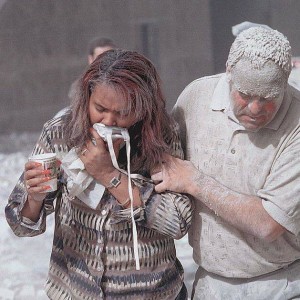The Myth of Closure - Part 3
May 06, 2011 by Victoria Noe, in 9/11
, closure
, Friend Grief
, grieving
, Osama bin Laden
, September 11
It's been quite a week, hasn't it?
I’ve been talking to a lot of people this week about closure, as it applies – or doesn’t – to the death of Osama bin Laden.
The word has been bandied about in newspapers, blogs, Facebook, Twitter and every news program on TV.
My “research” has gleaned the following observations:
1. Closure does not end grief.
2. Justice does not ultimately equal closure.
3. Those who speak most emphatically about closure tend to be observers to the situation, rather than directly affected.
4. Those who are most directly affected by 9/11 don’t all see bin Laden’s death as closure.
5. Believing there is closure makes people feel better, because they think they will no longer have to witness grief.
6. Closure doesn’t change anything.
Wouldn’t it be great if the last observation were true?
Wouldn’t it be great if closure meant we are no longer in pain, grieving the death of a loved one?
Wouldn’t it be great if closure meant that the person we mourn comes back to life?
While it’s certainly a good thing that the world has one less personification of evil, it doesn’t, as a friend said this morning, “change anything.”
We will grieve; we still miss the person who has died. And while our grief will soften and evolve, it will never completely go away.
That’s not necessarily a bad thing.
Because as long as we have our memories, that person still “lives” in our hearts and in our minds.
For me, getting to the point where you can think about that person, and smile instead of cry…that’s closure.


